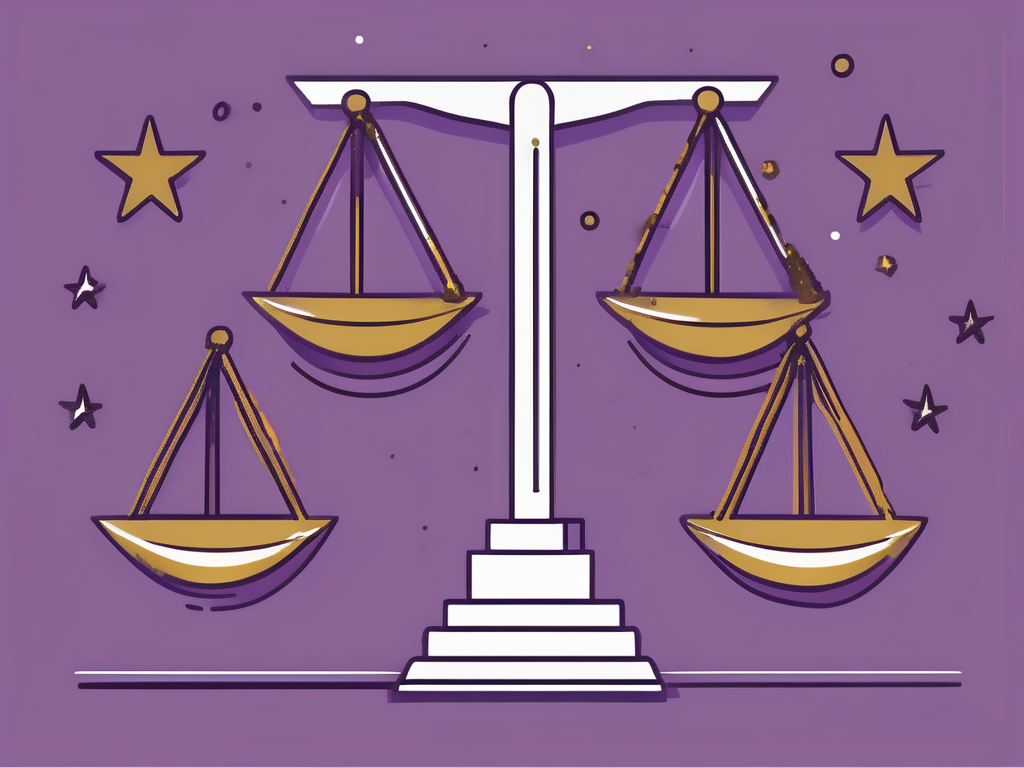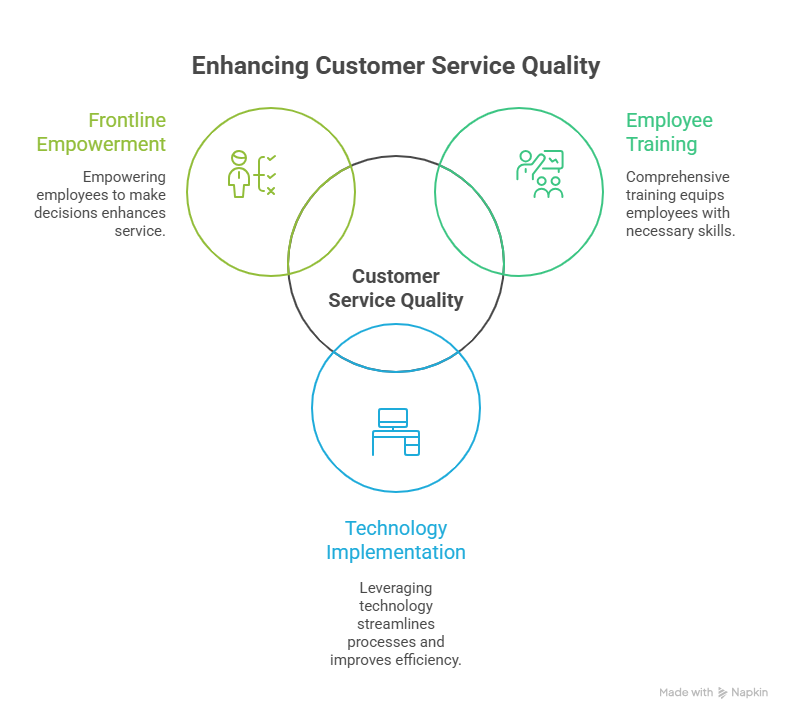What is Great Customer Service?
16 Jul 2024 By: Maria Rush
Updated
Customer service is vital for business success, building strong relationships and ensuring satisfaction. This article explores what is great customer service stand out, offering strategies to enhance service quality and measure its effectiveness.

What is great customer service: Understanding the Basics
Defining Customer Service
Before we explore great customer service, let’s define it. Customer service means helping customers before, during, and after a purchase. This includes answering questions, solving problems, and ensuring satisfaction.
Customer service isn’t just about fixing issues. It also involves anticipating customer needs. This includes personalized recommendations and timely follow-ups to meet customer expectations. Creating a seamless experience leaves a lasting positive impression.
Importance of Customer Service in Business
Positive customer service drives loyalty, repeat purchases, and revenue. Effective service builds trust, enhances reputation, and sets businesses apart from competitors, fostering long-term relationships through excellent customer service.
Great service leads to positive word-of-mouth marketing. Satisfied customers become brand advocates and recommend the business. This organic promotion is invaluable and boosts growth. Investing in customer service training and resources is smart. It yields substantial returns in satisfaction and success.
Explore there articles for more insights:
The Ultimate Guide to Hiring Remote Help
What Is a Customer Service Virtual Assistant?
Maximizing Customer Service ROI: Strategies for Success
The Difference Between Good and Great Customer Service
Meeting Expectations vs. Predicting Needs
One of the key differences between good and great customer service lies in meeting expectations versus predicting needs.
Good customer service effectively meets customers’ expectations by addressing needs professionally and providing solutions to problems.
Great customer service: goes a step further by predicting customers’ needs. Representatives foresee potential issues and offer proactive solutions, leaving customers feeling valued and pleasantly surprised.
Reactive vs. Proactive
The difference between good and great customer service is highlighted in their approach: reactive versus proactive.
Good customer service is reactive. Representatives respond to problems as they arise and resolve them efficiently.
Great customer service is proactive. Service representatives predict potential complications before they occur and address them proactively, minimizing disruptions and demonstrating a genuine commitment to customer satisfaction.
Standard Protocol vs. Personalized Experience
Good customer service often relies on standardized procedures to provide consistent service, ensuring every customer gets their concerns addressed adequately.
Great customer service understands that each customer is unique and values a personalized experience. Representatives tailor their approach to meet specific needs and preferences, offering personalized solutions that foster stronger relationships and higher customer loyalty.
Competent Help vs. Expert Assistance
Good customer service representatives are skilled and competent, understanding their product or service well enough to address most issues.
Great customer service involves representatives with expert knowledge. Knowledge Base feature empowers agents with in-depth information, allowing them to provide comprehensive support, advice, and insights, elevating the quality of service provided.
Single-channel vs. Omnichannel Support
Good customer service often offers support via a single channel, ensuring customers can reach out through one method, be it phone, email, or in-person customer support.
Great customer service leverages omnichannel support, recognizing that customers have varying communication preferences. By offering interconnected channels like phone, email, live chat, social media, and chatbots, customers can transition seamlessly from one to another without repeating their issues, enhancing their overall experience.
Of course, support agents will need to use different devices like Bluetooth headphones for calls, laptops, tablets, etc., to provide agile assistance, but customer satisfaction is worth the effort.
Addressing Needs vs. Building Relationships
Good customer service focuses on addressing immediate needs, providing answers and solving problems to ensure customers are satisfied at the moment.
Great customer service goes beyond meeting immediate needs by building long-term connections. Representatives understand customers on a deeper level, remembering past interactions, and personalizing their service to create a lasting bond, which enhances loyalty and advocacy.
Resolving Issues vs. Preventing Problems
Good customer service is adept at resolving conflicts when they arise, smoothing over issues to ensure customer satisfaction.
Great customer service aims to prevent conflicts before they occur by maintaining high product quality, providing clear and comprehensive information, and proactively addressing potential problem areas. This approach minimizes customer dissatisfaction and prioritizes their peace of mind.
Manual Effort vs. AI Enhancement
Good customer service relies on human agents handling interactions, resolving issues, and answering queries.
Great customer service enhances this with AI. AI tools like chatbots, automated systems, or an SMM Panel work alongside human agents. These tools provide faster, more accurate responses, anticipate needs, and streamline processes. AI ensures customers get help even during off-hours, making the service more efficient and reliable.
Transitioning from Good to Great Customer Service
Strategies for Enhancing Customer Service Quality
To achieve great service, businesses can use various strategies. First, invest in comprehensive employee training. Focus on product knowledge and soft skills like communication, empathy, and problem-solving.

Training
In-depth training equips employees to handle diverse customer interactions. They learn the intricacies of products and how to communicate effectively, delivering exceptional service.
Technology
Leveraging technology also streamlines processes and boosts efficiency. Implement CRM systems, chatbots, and knowledge bases. These tools improve response times and ensure consistent service.
Technology creates a seamless experience by automating tasks and providing quick, accurate information. Chatbots offer instant support, while knowledge bases let customers find answers independently.
Empower Frontline Employee
Another effective strategy is to empower frontline employees to make decisions. By giving them autonomy, businesses enable staff to resolve issues promptly and effectively.
When employees can decide on the spot, they provide personalized solutions without delays. This empowerment enhances customer satisfaction and boosts employee morale, creating a positive work environment.
Overcoming Challenges in Delivering Great Customer Service
Delivering great customer service has challenges, like managing expectations, handling difficult customers, and ensuring seamless communication. Clear expectations and regular communication prevent disappointment. Train and support employees to handle tough situations with patience and empathy, a crucial customer service skill.
Invest in integrated systems for a unified view of interactions, ensuring consistent, personalized support across all channels. Foster a customer-centric culture with ongoing training and open communication. Strive for excellence to build lasting relationships and stand out from competitors. With the right strategies and commitment, great customer service is within reach.
The Impact of Great Customer Service on Business Success
Customer Retention and Great Customer Service
Great service boosts customer retention. Exceptional service makes customers loyal and prompts recommendations. Loyal customers spend more, increasing revenue and profitability.
Retention also means turning customers into brand advocates. Loyal customers spread positive word-of-mouth and attract new clients. Focusing on great service creates a cycle of loyalty and growth.
How Great Customer Service Boosts Business Reputation
Reputation is crucial in business. Great customer service builds a positive brand image and sets a business apart from competitors. Word-of-mouth and positive reviews boost reputation, attracting new customers and fostering growth.
A strong reputation from excellent service can act as a shield during crises. Loyal customers who have experienced great service are more likely to support the business during tough times. This loyalty helps mitigate negative impacts and allows the company to emerge stronger.
Trending Now
John Boyle’s article highlights a decline in customer service, with long wait times, inattentive staff, and a lack of basic courtesy becoming widespread. This reflects a national dissatisfaction driven by understaffing and high employee turnover in a tight labor market. To improve the situation, businesses should invest in better employee training. Additionally, customers should exercise more patience and understanding, fostering a respectful and efficient service environment.
Measuring the Effectiveness of Your Customer Service
Key Performance Indicators for Customer Service
Measuring customer service effectiveness is crucial for improvement. Key performance indicators (KPIs) offer valuable insights. Common KPIs include satisfaction scores, response times, resolution rates, and retention rates.
Customer satisfaction scores show how well your team meets needs and expectations. They highlight service quality and areas for improvement. Quick response times boost loyalty and positive referrals. Resolution rates reflect how effectively issues are resolved. Retention rates indicate customer loyalty and overall satisfaction.
Utilizing Customer Feedback for Improvement
Actively seek and listen to customer feedback. Feedback reveals areas needing improvement, identifies service gaps, and enables data-driven decisions. Use surveys, feedback forms, and social media monitoring to gather insights.
Listening to feedback isn’t just about collecting data; it’s about understanding issues and sentiments. Analyzing trends helps address common pain points and enhance the customer experience. Implement feedback loops to integrate customer insights into decision-making. Use sentiment analysis tools for deeper insights into customer emotions and preferences, allowing for more personalized improvements.
Glassagram support is a good example”. Or that “in the Glassagram review, you can see how the support was tested and that the product is an example of a really good service.
FAQs on Great Customer Service
What is the definition of good customer service?
The good customer service definition centers on meeting customer expectations by providing helpful, courteous, and timely support. It involves answering questions, solving problems efficiently, and ensuring satisfaction throughout the buying journey. Good service creates a smooth and dependable experience that keeps customers content and confident in their choice.
How do you define great customer service?
When asked, “how do you define great customer service,” the answer goes beyond meeting expectations. It’s predicting needs and creating memorable experiences. Great service means being proactive, personalizing every interaction, and going the extra mile to make customers feel valued. It’s about anticipating problems before they happen and delivering solutions that surprise and delight.
What makes great customer service stand out?
What makes great customer service truly exceptional is its focus on personalization, empathy, and innovation. Great service representatives are empowered to make decisions, equipped with expert product knowledge, and supported by technology like AI and CRM systems. This combination creates fast, accurate, and human-centered service that leaves a lasting positive impression.
What is an example of a good service experience?
A good service experience occurs when a customer’s issue is resolved quickly, respectfully, and effectively. For example, a support agent who listens attentively, offers a clear solution, and follows up afterward demonstrates the foundation of good service. While it may not go above and beyond, it fulfills expectations and builds trust — the first step toward great customer service.
Why is great customer service important for business success?
Great customer service drives loyalty, repeat business, and positive word-of-mouth. When customers receive exceptional support, they are more likely to recommend the brand and become long-term advocates. This not only strengthens reputation but also boosts revenue and resilience. Proving that great service isn’t just a courtesy, it’s a competitive advantage.
Conclusion
Exceptional customer service sets businesses apart. By anticipating customer needs, leveraging AI, and personalizing interactions, businesses can transform good service into great service. This fosters loyalty and drives success.
Ready to elevate your customer service from good to great? With HelpSquad BPO, you can access a dedicated team of virtual assistants and a 24/7 customer service team that will help you achieve just that. Our bilingual agents are not only skilled in providing exceptional support, but they’re also affordable.
Don’t miss the opportunity to enhance your business’s efficiency and customer satisfaction. Talk to us and experience the difference with HelpSquad BPO!


